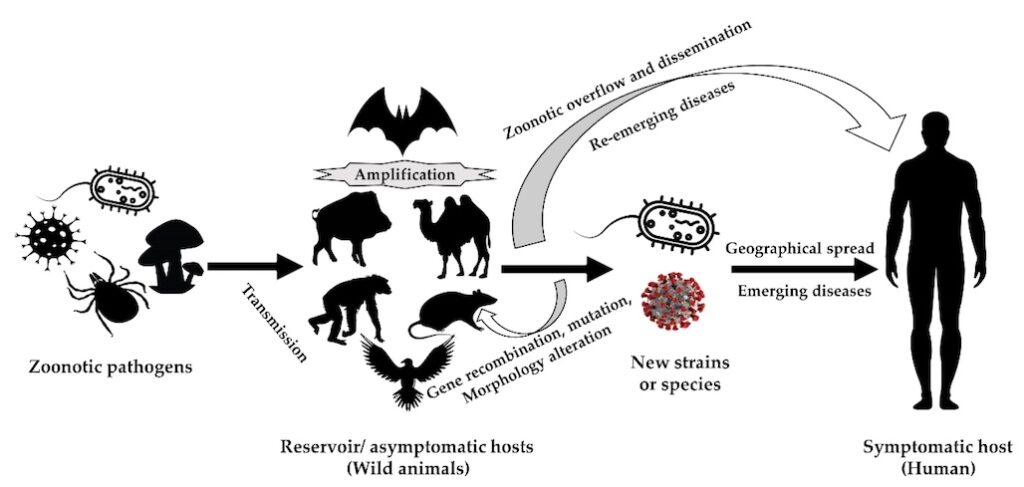
According to the World Health Organization-WHO, the continent is reported to have registered a 63 percent increase in the number of zoonotic disease outbreaks in the period from 2012 to 2022 compared to 2001-2011. This was revealed on Thursday during a weekly virtual meeting organized by the WHO.
Figures from the WHO show that in the period 2001 to 2022, there were 1,843 substantiated public health events recorded in the WHO African region. 30 percent of these events were zoonotic disease outbreaks.
The continent recorded its highest spike of the disease in the period 2019-2020 where 50 percent were zoonotic diseases and led to 50 percent of all public health events, while Ebola virus disease and other viral hemorrhagic fevers led to nearly 70 percent of these outbreaks.
Dengue fever, anthrax, plague, and a range of other diseases make up 30 percent.
At the moment, some countries are reporting cases of monkey pox disease. The latest data on monkeypox finds a significant increase in cases since April 2022, compared to the same period in 2021. The increase is mainly observed in the Democratic Republic of the Congo-DRC and Nigeria.
Ghana also recently reported a Marburg disease outbreak, while neighboring Tanzania is reporting a strange disease, suspected to be a hemorrhagic fever.
Epidemiologists attribute the current increase in zoonotic disease outbreaks to the high rate at which the population on the continent is increasing. Due to the population growth, humans are being forced to encroach on animal habitats such as forests which increases the likelihood of man interacting with infected animals which leads to infections, which are later carried to cities.
Dr Matshidiso Moeti, the WHO Regional Director for Africa says African countries need to work towards containing zoonotic diseases on the continent because their occurrence is on the rise.
“Infections originating in animals and then jumping to humans have been happening for centuries, but the risk of mass infections and deaths had been relatively limited in Africa. Poor transport infrastructure acted as a natural barrier. We must act now to contain zoonotic diseases before they can cause widespread infections and stop Africa from becoming a hotspot for emerging infectious diseases,” Dr Moeti said.
WHO recommends the use of a one-health approach where multiple sectors, disciplines, and communities work in collaboration to monitor and control the spread of diseases from animals to man. Countries are being encouraged to increase their research, to identify environmental, socioeconomic, and cultural factors that boost the emergence and transmission of epidemic-prone diseases, as well as to better understand the factors that affect the impact and spread of epidemics, including the immune status, nutrition, genetic and antimicrobial resistance.
“We need all hands on deck to prevent and control zoonotic diseases such as Ebola, monkeypox, and even other coronaviruses. Zoonotic diseases are caused by spillover events from animals to humans. Only when we break down the walls between disciplines can we tackle all aspects of the response,” Dr. Moeti said.
Dr Karim Tounkara, the Regional Representative for Africa, World Organization for Animal Health (OIE) says the interaction between humans and animals needs to be reduced.
“We know that these diseases are picked from animals. One way of controlling zoonotic disease is by ensuring that man reduces his interaction with animals that are known to carry some of these viruses. This included bush meat. In case one is to eat bush meat, they should make sure that they boil thoroughly to kill any virus that might be in the meat,” he said.















